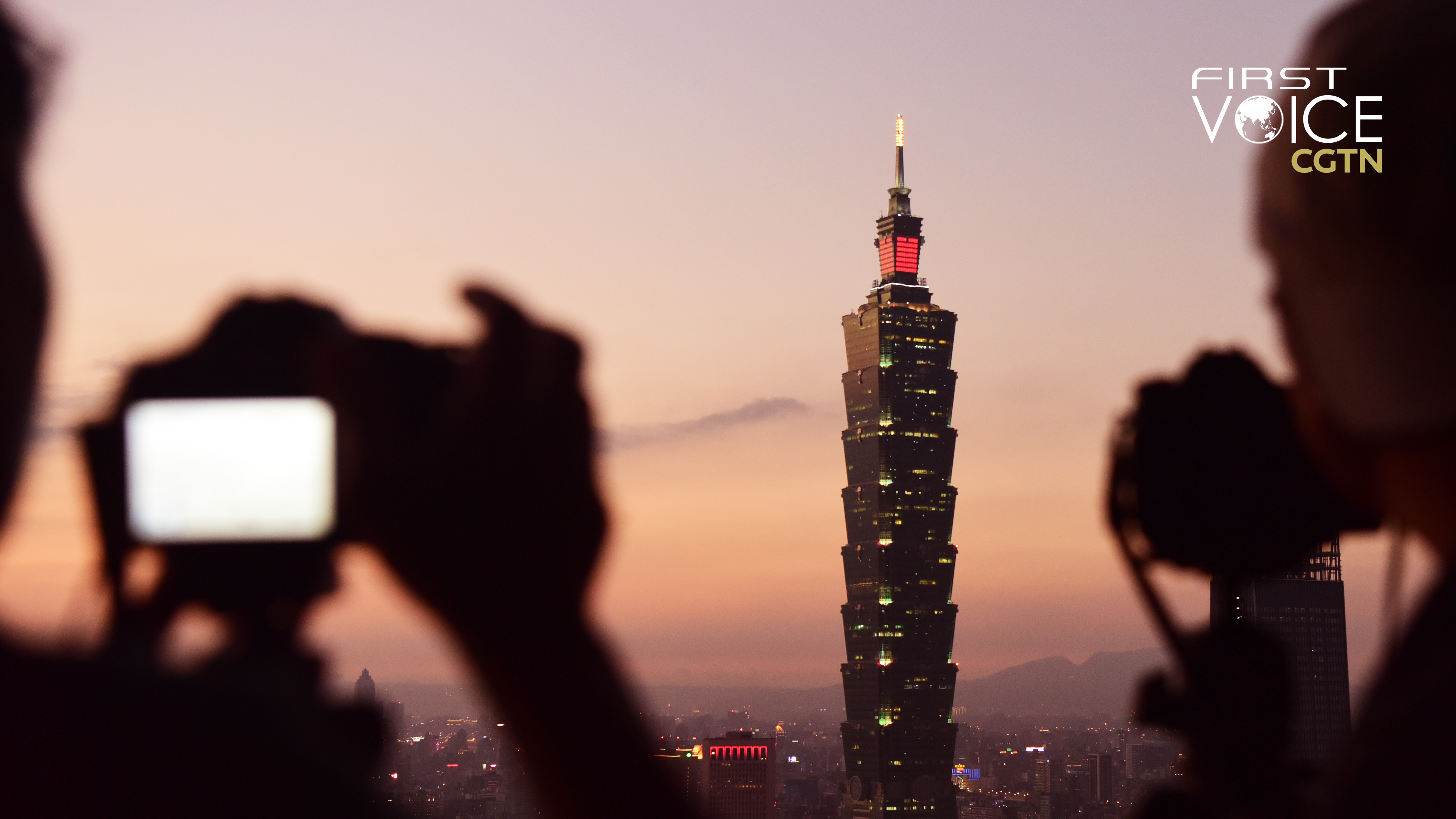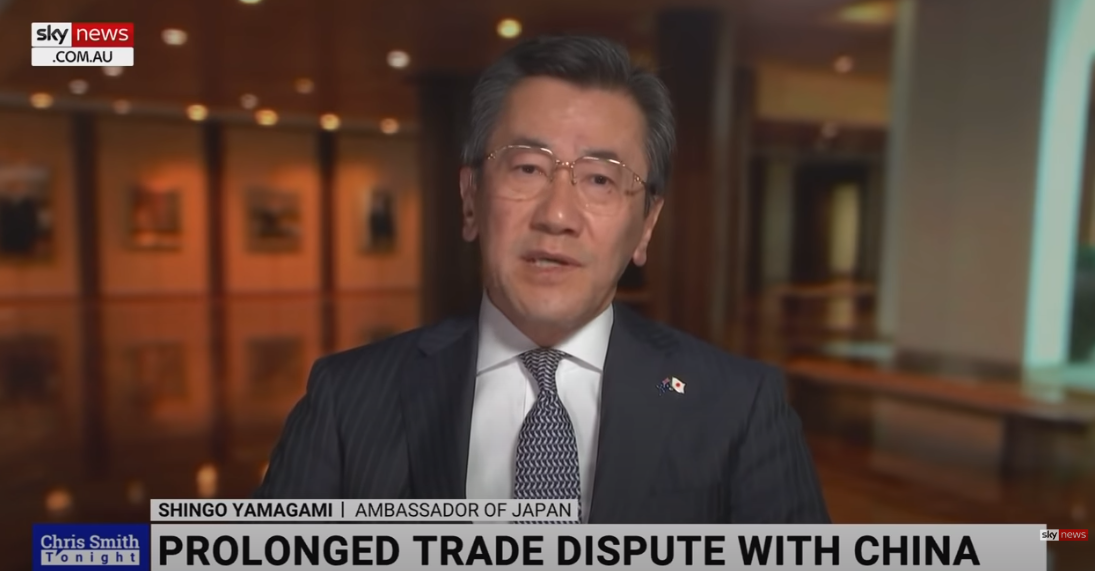
Editor's note: CGTN's First Voice provides instant commentary on breaking stories. The daily column clarifies emerging issues and better defines the news agenda, offering a Chinese perspective on the latest global events.
Japan's Ambassador to Australia Shingo Yamagami told Australia's Sky News that he is an agent of "peace and stability," even as he and his country push toward conflict and war. In the interview, Yamagami tried to fuel Australian resentment toward China and inflame tensions between the two nations.
It is part of a larger Japan and the U.S. campaign to paint China as a bullying enemy and win support from the Australian people to forge a military and trade bloc.
Australia has for some time been taking a confrontational attitude by criticizing China at every opportunity, treating Chinese companies unfairly and damaging the mutual trust between the two countries.
After banning Huawei from its 5G broadband network in 2018, Canberra, citing so-called national security concerns, is currently mulling whether to rip up the 99-year Darwin Port lease held by a Chinese firm. These moves have severely undermined the foundation of regular Beijing-Canberra exchanges and cooperation.
Referring to a territorial dispute a decade ago in which Japan captured a Chinese fishing captain, Yamagami gleefully threw salt in this wound and promised that Australia is "not walking alone."
Yamagami likes to talk about peace, but by taking extraordinary measures to encourage separatists in Taiwan, he and his country are pushing toward war in the Taiwan Straits.
It is well known that the U.S., India, Japan and Australia have formed a club, the Quad, trying to counter China's rising influence in the region.
Japan is now taking matters a step further, moving to develop "diplomatic" relations and security ties with Taiwan. This mirrors efforts started under the Trump administration that continue under the current U.S. presidency.
This week Japan's ruling party agreed to welcome Taiwan into the Comprehensive and Progressive Agreement for the Trans-Pacific Partnership trade bloc.
During the Sky News interview, Yamagami did not bring up any of these provocative actions.
Instead, when asked whether Japan's reported decision to take risks on the Taiwan question is tantamount to provoking war, Yamagami laughed the warning off and said it was "just an exaggeration."
Yamagami then showed his true intentions by immediately referring to the military exercises conducted jointly by the U.S., Japan and Australia in the South China Sea and East China Sea.
"This kind of exercise speaks for itself," Yamagami said. In almost the same breath as mentioning military force, Yamagami said, "Rather than escalate the issue, we are doing everything to reach a peaceful solution through dialogue."

A screenshot of Sky News' interview with Japan's Ambassador to Australia Shingo Yamagami.
A screenshot of Sky News' interview with Japan's Ambassador to Australia Shingo Yamagami.
Until recently, relations across the Taiwan Straits were stable and peaceful for decades.
But the U.S., alarmed at the rise of China's power, has started to change the status quo, encouraging "Taiwan independence" separatists as a way to distract, isolate and weaken China.
Japan's recent moves to establish ties with these separatists are simply the latest move in this U.S. power game. And Yamagami's efforts to inflame the relationship between Australia and China are part of this strategy.
Yamagami went so far as to suggest that Australia diversify its trade away from China to "diversify risks." He hypocritically said, "The important thing is trade should never be used to apply political pressure."
It seems that he has no memory or has totally forgotten about the Plaza Accord forced onto Japan mainly by the U.S. in 1985 when the U.S. felt the threat from a rapidly rising Japan.
Moreover, both Japan and Australia are currently sanctioning dozens of countries. Japan, in particular, has trade sanctions against both the Democratic Republic of Korea and the Republic of Korea over political disputes. The U.S., of course, frequently turns to economic sanctions to further its political goals, even with its closest allies and trade partners.
Chinese and Australians are frustrated by the issues that have led to the current low point in relations between the two countries.
In the heat of such a dispute, forming a military alliance against China will certainly have an emotional appeal.
However, Australia should be careful when suitors say "it is not walking alone." That's what U.S. allies in Afghanistan, Syria, Iraq and Vietnam were promised. In the end, the U.S. abandoned all of them.
Australia must not allow itself to be drawn into a power dispute it has no role in and from which it cannot benefit.
(If you want to contribute and have specific expertise, please contact us at opinions@cgtn.com.)

